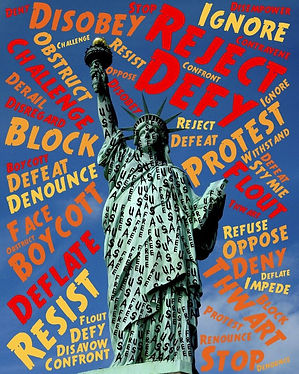A CONSPIRACY TO LOVE & LOVE IN ACTION
LIVING A LIFE OF JOY, GENEROSITY & POWER
Do you want more love in your life? More respect?More joy? This book is designed to help the reader explore paths to personal and transformative power. It will help the reader determine the necessary ingredients for love and happiness and allow the reader to lovingly challenge his/her/their ownunfinished business toward healing one's self and our larger community. This book is about generosity for ourselves and all those who cross our paths. It's about growing consciously through our joys, our fears and our pain. It's about transformation of each of us, our culture and our beloved Earth. This book is about LOVE, about POWER, and a SEA of JOY.
Dive in!
LOVE IN ACTION ❤️
THE UNACCEPTABLE

VOTE LIKE YOUR LIFE DEPENDS ON IT!!!








MURDERED






KEITH J PORTER
Killed by Ice in LA



I DON'T CARE... SAVING DEMOCRACY
Renee Good
Click Image
BB
BOYCOTT HARD!!!
CITIBANK
AT&T
TESLA





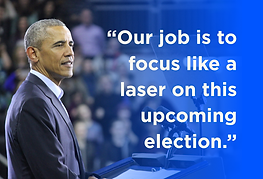

WE'RE STILL HERE


LIST OF PLACES TO DONATE TO SUPPORT MINNESOTA; RAPID RESPONSE, LEGAL, ETC.
CLICK IMAGE


MN COMMUNITY NEWS; INSIDER INFO




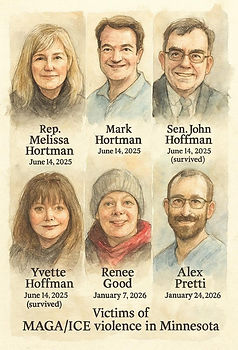







Jan 6 WE WILL NEVER FORGET
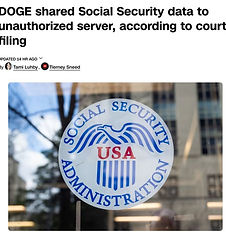











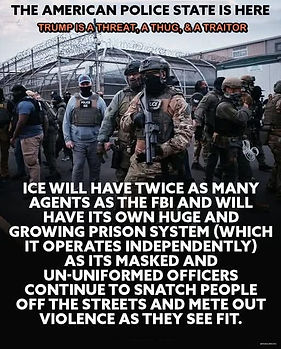









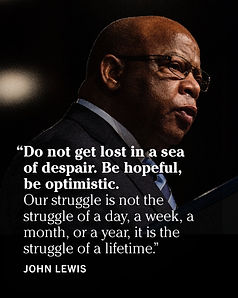












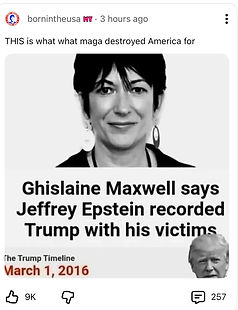











DEMONSTRATING


AMERICA'S
CONCENTRATION
CAMPS
River Smith
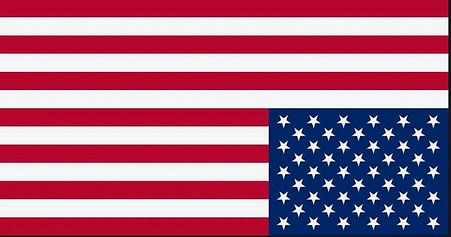


Good Trouble Is Always A Good Idea
PLAN OF ACTION FOR THE DEMOCRATIC PARTY
& EVERYONE ELSE WHO WANTS TO TAKE ACTION
By Dr Pru Lee
Dear Democratic Party
I need more from you.
You keep sending emails begging for $15, while we’re watching fascism consolidate power in real time. This administration is not simply “a different ideology.” It is a coordinated, authoritarian machine — with the Supreme Court, the House, the Senate, and the executive pen all under its control.
And you?
You’re still asking for decorum and donations. WTF.
That won’t save us.
I don’t want to hear another polite floor speech.
I want strategy.
I want fire.
I want action so bold it shifts the damn news cycle — not fits inside one.
Every time I see something from the DNC, it’s asking me for funds. Surprise. Those of us who donate don’t want to keep sending money just to watch you stand frozen as the Constitution goes up in flames — shaking your heads and saying, “Well, there’s not much we can do. He has the majority.”
I call bullshit.
If you don’t know how to think outside the box…
If you don’t know how to strategize…
If you don’t know how to fight fire with fire…
what the hell are we giving you money for?
Some of us have two or three advanced degrees.
Some of us have military training.
Some of us know what coordinated resistance looks like — and this ain’t it.
Yes, the tours around the country? Nice.
The speeches? Nice.
The clever congressional clapbacks? Nice.
That was great for giving hope.
Now we need action.
You have to stop acting like this is a normal presidency that will just time out in four years. We’re not even at Day 90, and look at the chaos. Look at the disappearances. Look at the erosion of the judiciary, the press, and our rights. If you do not stop this, we will not make it 1,460 days.
So here’s what I need from you — right now:
⸻
1. Form an independent, civilian-powered investigative coalition.
I’m talking experts. Veterans. Whistleblowers. Journalists. Watchdog orgs.
Deputize the resistance. Build a real-time archive of corruption, overreach, and executive abuse.
Make it public. Make it unshakable.
Let the people drag the rot into the light.
If you can’t hold formal hearings, hold public ones.
If Congress won’t act, let the country act.
This isn’t about optics — it’s about receipts.
Because at some point, these people will be held accountable. And when that day comes, we’ll need every name, every signature, every illegal order, every act of silence documented. You’re not just preserving truth — you’re preparing evidence for prosecution. The more they vanish people and weaponize data, the more we need truth in the sunlight.
⸻
2. Join the International Criminal Court.
Yes, I said it. Call their bluff. You cannot control what the other side does. But you can control your own integrity. So prove it. Prove that your party is still grounded in law, human rights, and ethical leadership.
Join.
If you’ve got nothing to hide — join.
Show the world who’s hiding bodies, bribes, and buried bank accounts. Force the GOP to explain why they’d rather protect a war criminal than sign a treaty. And while you’re at it, publicly invite ICC observers into U.S. borders. Make this administration explain — on camera — why they’re terrified of international oversight.
⸻
3. Fund state-level resistance infrastructure.
Don’t just send postcards. Send resources.
Channel DNC funds into rapid-response teams, legal defense coalitions, sanctuary networks, and digital security training.
If the federal government is hijacked, build power underneath it.
If the laws become tools of oppression, help people resist them legally, locally, and boldly.
This is not campaign season — this is an authoritarian purge. Stop campaigning. Act like this is the end of democracy, because it is. We WILL REMEMBER the warriors come primaries. Fighting this regime should be your marketing strategy.
And let’s be clear:
The reason the other side always seems three steps ahead is because they ARE.
They prepared for this. They infiltrated school boards, courts, local legislatures, and police unions. They built a machine while you wrote press releases. We’re reacting — they’ve been executing a plan for years.
It’s time to shift from panic to blueprint.
You should already be working with strategists and military minds on PROJECT 2029 — a coordinated, long-term plan to rebuild this country when the smoke clears.
You should be publicly laying out:
• The laws and amendments you’ll pass to ensure this never happens again
• The systems you’ll tear down and the safeguards you’ll enshrine
• The plan to hold perpetrators of human atrocities accountable
• The urgent commitment to immediately bring home those sold into slavery in El Salvador
You say you’re the party of the people? Then show the people the plan.
⸻
4. Use your platform to educate the public on rights and resistance tactics.
If they’re going to strip us of rights and lie about it — arm the people with truth. Text campaigns. Mass trainings. Downloadable “Know Your Rights” kits. Multilingual legal guides. Encrypted phone trees.
Give people tools, not soundbites.
We don’t need more slogans.
We need survival manuals.
⸻
5. Leverage international media and watchdogs.
Stop hoping U.S. cable news will wake up. They’re too busy playing both sides of fascism. Feed the real stories to BBC, Al Jazeera, The Guardian, Reuters, Der Spiegel — hell, leak them to anonymous dropboxes if you have to. Make what’s happening in America a global scandal. And stop relying on platforms that are actively suppressing truth.
Start leveraging Substack. Use Bluesky. That’s where the resistance is migrating. That’s where censorship hasn’t caught up. If the mainstream won’t carry the truth — outflank them. Get creative. Go underground. Go global.
If our democracy is being dismantled in broad daylight, make sure the whole world sees it — and make sure we’re still able to say it.
⸻
6. Create a digital safe haven for whistleblowers and defectors.
Not everyone inside this regime is loyal. Some are scared. Some want out. Build the channels. Encrypted. Anonymous. Protected. Make it easy for the cracks in the system to become gaping holes.
And while you’re at it? Stop ostracizing MAGA defectors. Everyone makes mistakes — even glaring, critical ones. We are not the bullies. We are not the ones filled with hate.
And it is not your job to shame people who finally saw the fire and chose to step out of it.
They will have to deal with that internal struggle — the guilt of putting a very dangerous and callous regime in power. But they’re already outnumbered. Don’t push them back into the crowd.
We don’t need purity. We need numbers. We need people willing to burn their red hats and testify against the machine they helped build.
⸻
7. Study the collapse—and the comeback.
You should be learning from South Korea and how they managed their brief rule under dictatorship. They didn’t waste time chasing the one man with absolute immunity. They went after the structure.
The aides. The enforcers. The loyalists. The architects.
They knocked out the foundation one pillar at a time — until the “strongman” had no one left to stand on. And his power crumbled beneath him.
You should be independently investigating every author of Project 2025, every aide who defies court orders, every communications director repeating lies, every policy writer enabling cruelty, every water boy who keeps this engine running.
You can’t stop a regime by asking the king to sit down. You dismantle the throne he’s standing on — one coward at a time.
⸻
Stop being scared to fight dirty when the other side is fighting to erase the damn Constitution.
They are threatening to disappear AMERICANS.
A M E R I C A N S.
And your biggest move can’t be another strongly worded email.
We don’t want your urgently fundraising subject lines. We want backbone. We want action. We want to know you’ll stand up before we’re all ordered to sit down — permanently.
We are watching. And I don’t just mean your base. I mean millions of us who see exactly what’s happening.
I’ve only got 6,000 followers — but the groups I’m in? The networks I touch? Over a quarter million. Often when I speak, it echoes. But when we ALL speak, it ROARS with pressure that will cause change. We need to be deafening.
You still have a chance to do something historic. To be remembered for courage, not caution. To go down as the party that didn’t just watch the fall — but fought the hell back with everything they had.
But the clock is ticking.
And the deportation buses are idling.

About the Author & CoCreator
RIVER SMITH
A social justice educator/activist
and psychologist specializing in post-traumatic stress and
relationship healing, River Smith is past co-chair of the
National Organization for Men Against Sexism. A former
college history instructor, a producer and host of radio and
TV shows focused on love & justice, he is also a nationally
published poet, eco-feminist commentator, columnist and
author of numerous books including Like She is In Him
(2019), The Power Handbook (2014) and with Victor Lee
Lewis and Hugh Vasquez, Lessons from The Color of Fear:
A Teacher's Manual (2007).
Website CoCreator: KamalaDevi Venus








